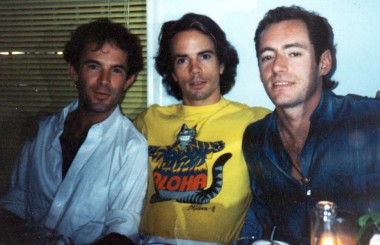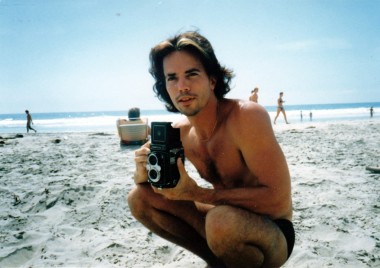I’ve unexpectedly found myself spending a lot of this Memorial Day weekend looking at old pictures and uncovering all kinds of pleasant recollections.

In the summer of 1986, I went on a West Coast road trip with my friend the late Bob Boyle. We ended up in San Diego, but we started out in San Francisco, where I hung out with my playwright friend Stanley Rutherford in the Embarcadero on his lunch break.

Los Angeles was a big destination, and I was eager to see a whole bunch of friends in a short amount of time. So we all met at a Mexican restaurant. I think this was where I first met the poet and artist Gavin Dillard (center), who was then dating my friend the late Dave Whyte (right).

Also at that same dinner were the late Peter Evans (left), a dear friend of mine from New York, and Rick Fouts (right), whom I first met while standing in line at a theater in LA two years earlier.

From there we proceeded to La Jolla where we spent time on Black’s Beach with Dave and Gavin. Gavin took a bunch of great black-and-white photos of us that day, and I got this shot of him.

In those days, I was friends with Des McAnuff, who was artistic director of the La Jolla Playhouse, and I saw shows Des directed there every chance I could get. He and his wife Susan Berman (above) played with the band (the Cadillac Cowboys, below) in a fun mini-concert after William Hauptman’s terrific play GILLETTE, whose cast included a very young Campbell Scott.








